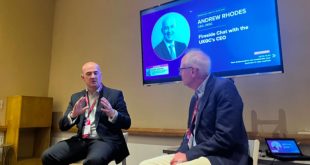
Readers will recall that greater protection for British consumers was the prime reason the Government introduced last year’s new legislation requiring all overseas online gambling operators wishing to transact with, or advertise to, British customers to obtain an operating licence from the Gambling Commission. In addition, by 31 March 2015, operators licensed in Great Britain must source their gambling software solely from software providers who have themselves become licensed by the Commission.
Greater consumer protection has certainly been the theme behind the latest raft of changes to the Gambling Commission’s LCCP announced in February, but it is premises-based operators who will also have to step up to the mark.
The changes, most of which will come into force on 8 May 2015, have been widely publicized and include the following requirements:
- in addition to all operators improving their training, policies, procedures, and control measures to ensure access to gambling by children and young people is prevented, casinos and larger operators must conduct test purchasing to monitor the effectiveness of their systems for preventing underage gambling
- premises-based operators’ employees must be able to supervise customers effectively on gambling premises and they must have arrangements for better identification and effective intervention in respect of customers who are at risk of gambling-related harm but who may not be displaying signs associated with problem gambling
- “free bet” offers must be marketed in a fair and open way and must not mislead
- online operators must comply with additional remote technical standards for gambling management tools, including “time-out” facilities and timed on-screen checks
- customers must be required by betting office operators to make an active choice whether to set time and monetary thresholds for customer and staff alerts when using B2 machines
- larger operators must complete a new Annual Assurance Statement explaining how, at the most senior levels of the business, they ensure that their provision of gambling is in line with the licensing objectives
- premises-based operators must have an improved awareness of local risks to the licensing objectives
In addition, by April 2016 premises-based operators must have in place schemes that allow a customer to make a single request to self-exclude from all operators of a similar type within their area, typically where they live and work. The Commission is also working with remote industry representatives to develop a national multi-operator self-exclusion scheme, which should be in place in 2017, in which all licensed remote operators will be required to participate within one month of it being established.
A summary of the key changes is available on the Commission’s website. However, it is the philosophy behind the changes on which I will now focus, bearing in mind that some within the industry will no doubt view the more robust LCCP as constituting a still greater quantity of red tape threatening to strangle their business.
By way of contrast, commenting that “gambling benefits a lot of people a little and harms a few people a lot”, the Gambling Commission sees the changes as “strengthening social responsibility” – the very title it has given to its document describing the changes – and, again in its own words “stopping the less responsible from undercutting the responsible”.
The Commission makes it abundantly clear that the central thesis on which its system of gambling regulation is based is the principle that responsibility for delivering the licensing objectives rests first and foremost with gambling operators.
With particular concern that the anonymity inherent in cash-based gambling makes identifying and reducing harm more challenging than it might otherwise be, the Commission is throwing down the gauntlet to the industry to demonstrate to its satisfaction that measures taken by it (combined with an increased use of data available online) are providing the Commission with increased understanding and scope for effective harm prevention and mitigation. It warns that the removal of anonymity and a movement in future to account-based play, at least for harder forms of gambling, could result if that challenge is not adequately met.
Justifying the changes to the LCCP, Philip Graf (the Chairman of the Commission) describes the regulator as having to achieve a balance between its legal obligations (a) to permit gambling insofar as it is reasonably consistent with the licensing objectives and (b) to have regard to the desirability of economic growth. Many in the industry, including those online operators accustomed to the licensing and regulatory systems in operation elsewhere, might consider this latter obligation as being intended to support the business aims and ambitions of licence-holders. However, the Gambling Commission sees it differently, instead regarding itself as obliged to minimise the regulatory burden associated with protecting the public rather than obliged to promote the industry’s growth.
Although the Commission takes the view that the changes reflect “developments in social responsibility practice and significantly improved understanding of risk since 2007”, in the absence of clear evidence that more robust LCCP were required across all sectors of the gambling industry in light of voluntary measures being adopted by some, a number of operators may regard at least certain of the changes as doing something other than minimising the regulatory burden. However, they must recognize that consumer protection is at the heart of British gambling legislation and many of the LCCP changes reflect both voluntary measures of the type mentioned above and general expressions of public concern.
____________________
David Clifton Director Clifton Davies









